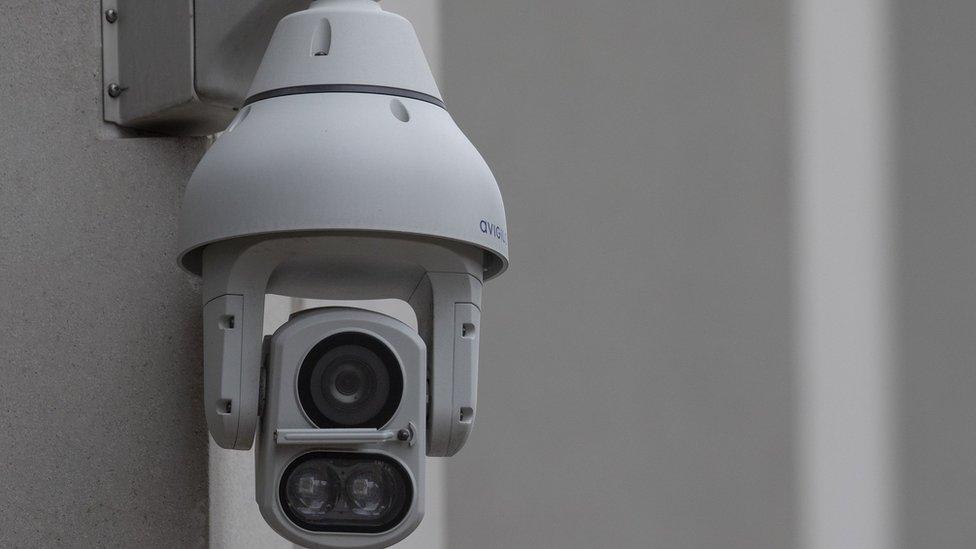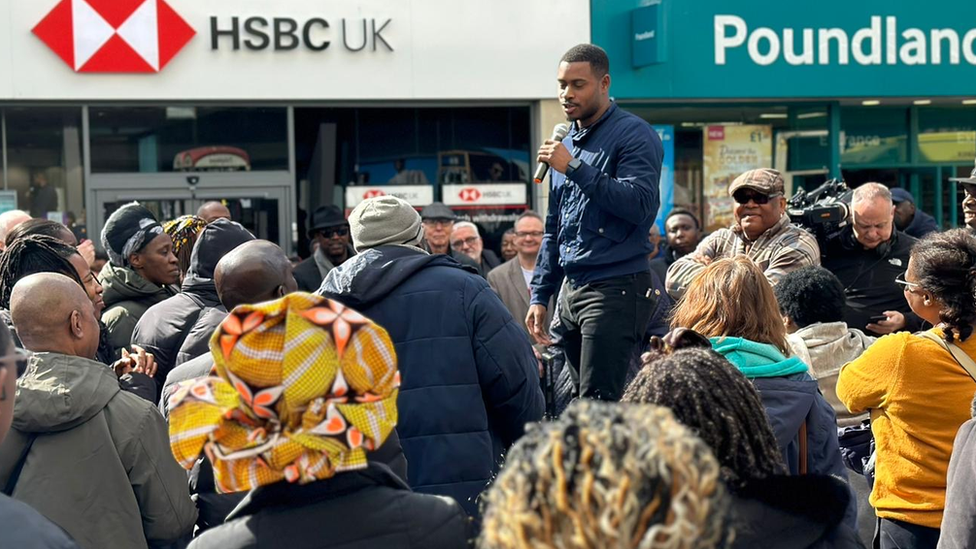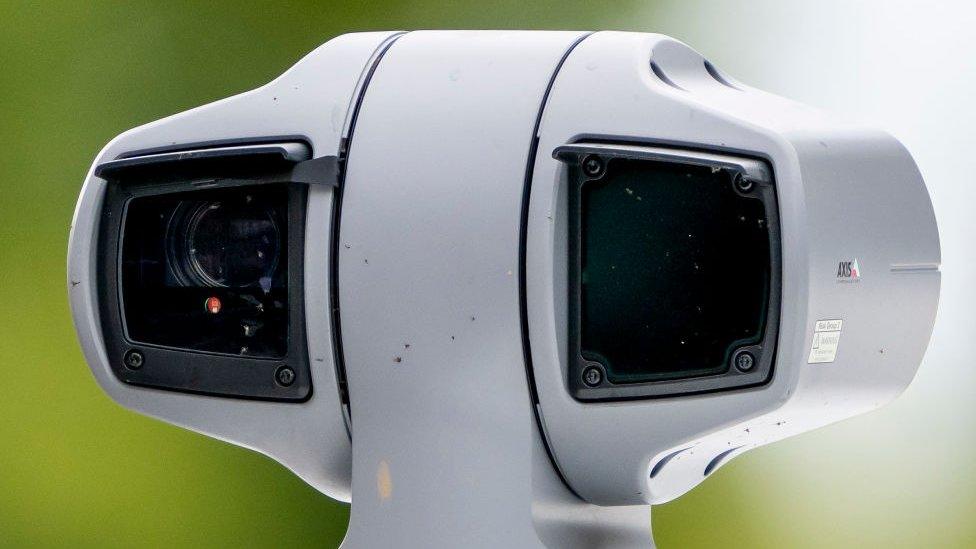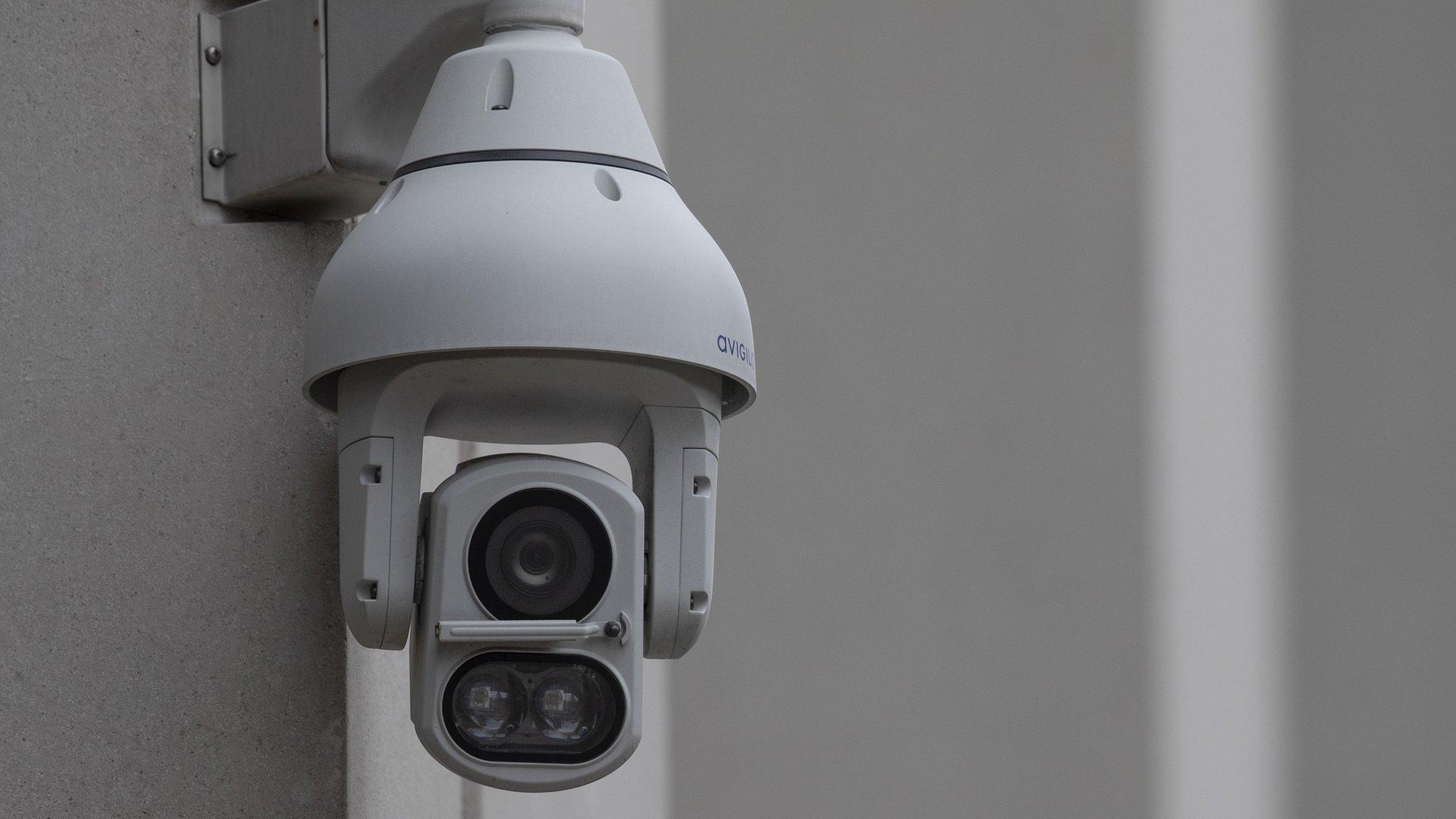Croydon: Five arrests after Met Police uses live facial recognition
- Published

Civil liberties campaigners are "deeply concerned" about the use of facial technology
The Metropolitan Police has arrested five people after using Live Facial Recognition (LFR) technology in south London.
The force said it deployed the technology in Croydon on 19 January as part of its work to "reduce serious violence".
Civil liberties organisation Liberty called the Met's use of it "deeply concerning".
The force said using facial recognition identified "harmful criminals".
The technology scans the faces of people passing through an area against a watchlist of people wanted by police and sets off an alert when a match is made.
The Met said it had heard concerns from people about violence on their streets and that using LFR had led to the arrest of:
A woman, 32, for failing to appear at court for burglary
A man, 50, for failing to comply with his conditions as a Registered Sex Offender
A man, 34, wanted by police for robbery
A 36-year-old wanted by the court for offences in relation to animal cruelty
A woman, 31, wanted for failing to appear at court for drink drive related offences
The Met's Director of Intelligence Lindsey Chiswick said: "As part of our commitment to building A New Met For London we are using this technology to identify harmful criminals.
"Trying to identify people who are wanted by the police is not new. LFR does what the police have always done but with much more accuracy, precision and far quicker."
She said that if the system did not find a match, all biometric details were "immediately destroyed".
The force said it announces when LFR will be used in an area beforehand, and neighbourhood officers explain its use while it is running.

A march was held in Croydon in April following a recent rise in violent incidents
In May facial recognition was also used on crowds attending a Beyoncé concert in Cardiff . It was later revealed they were used to scan for paedophiles and terrorists.
But campaigners argue that it potentially violates the privacy of thousands.
Emmanuelle Andrews from Liberty, said: "Police facial recognition that can identify and track down anyone is dangerous tech, especially in the hands of a police force that we know is systemically racist, sexist and violent.
"This new deployment of facial recognition technology by the Met is deeply concerning.
"We all have the right to walk the streets, do our shopping and meet up with friends without being scanned and monitored by police.
"The safest thing to do with facial recognition technology is to ban it."

Listen to the best of BBC Radio London on Sounds and follow BBC London on Facebook, external, X, external and Instagram, external. Send your story ideas to hello.bbclondon@bbc.co.uk
- Published6 October 2023

- Published30 January 2020
